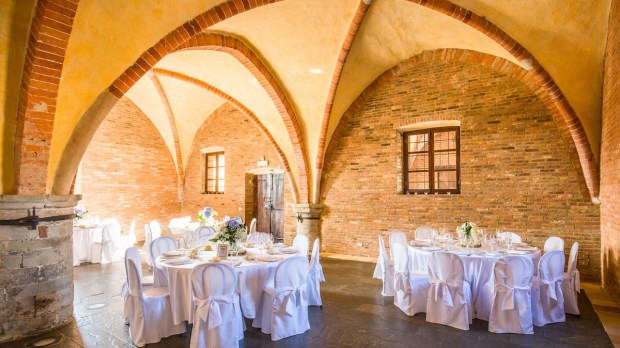I suppose it’s because of my insecurity, but whenever I receive an invitation to a ceremony, or a wedding, or a special event, I’m always surprised. It makes me wonder, Do they really want me there? The graciousness of the invitation can seem too good to be true.
The mystery of our refusal
But that is at the heart of the parable we hear this weekend: the parable of the wedding feast (Mt 22:1-14). And even though “the feast is ready” and foretokens an awesome occasion of celebration, many of the invited “refused to come.” By declining the invitation, they seem to be refusing the chance for exceptional happiness. Maybe that is just the point of the parable.
Do we always possess a clear idea of what we need to be happy … of what happiness consists in? There’s no more urgent subject. When we don’t pay attention to our need for happiness, we can become deceived into believing that our happiness consists in pleasure, possessions, power, or popularity. None of these things are ever enough … but they become a priority in our life, they begin to turn into idols. And then when the invitation from the King comes, we not only refuse it but become even violent towards it. Dominican Fr. M.D. Molinié, O.P., alludes to this when he writes, “Deep inside us there is a sly resistance. I think that the deepest and most irremediable pride consists of refusing to accept the infinite so as to ‘be content’ with what is within our reach.”
St. John Henry Newman tells us this:
It is certain that man is not sufficient for his own happiness, that he is not himself, is not at home with himself, without the presence within him of the grace of him who, knowing it, has offered that grace to all freely.
The invitation to the wedding feast is the offer of that grace. For, as St. Thomas Aquinas stresses, any human being who is happy shares in the happiness that is not of themself: “The which produces happiness is something outside of the soul.” Something to be found at the wedding feast.
We are made for a feast
A feast is much more than a party; it is a symbol of what we are made for. For good reason the Church refers to liturgical celebrations as feast. Cardinal Joseph Ratzinger explains why:
A Christian feast means that the human person leaves the world of calculation and determinisms in which everyday life snares him, and that he focuses his being on the primal source of his existence. It means that for the moment he is freed from the stern logic of the struggle for existence and looks beyond his own narrow world to the totality of things. It means that he allows himself to be comforted, allows his conscience to be moved by the love he finds in the God who has become a child, and that in doing so he becomes freer, richer, purer.
God who is our King invites us to the feast he has readied for us to bless us with that freedom, that comfort, and that intimacy with him.
The wonder of the wedding
Jesus longs for us to attend the feast, not just as a guest, but as his Beloved. Unspoken in his invitation are these words found in the Prophet Hosea:
I will espouse you to me forever;
I will espouse you in right and in justice, in love and in mercy;
I will espouse you in fidelity,
and you shall know the Lord. (Hosea 2:21-22)
And as the Dominican mystic Fr. John Tauler assures us, “when a person experiences these happy and gracious joys in his espousals with God, he will never again think of earthly joys. The joys even of Christmas and of Easter seem to him to be all merged in the unbroken happiness of his perpetual marriage feast, as God ever comes to him with overflowing supernatural graces.” Come to the feast.
~
Find Fr. Peter John Cameron’s reflection on the Sunday Gospel each week here.
And follow his series of brief reflections on prayer here.

